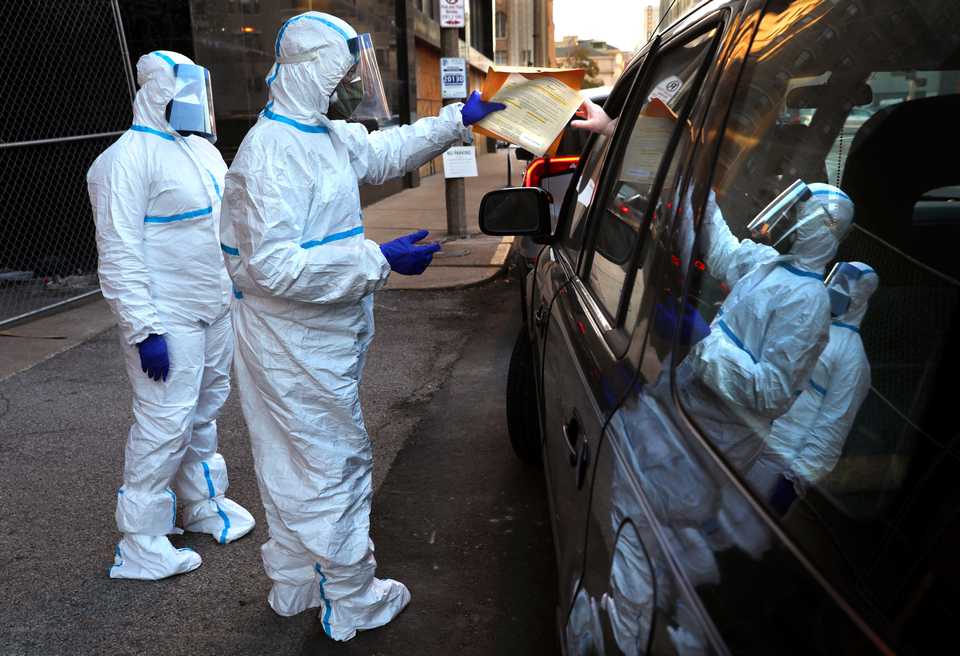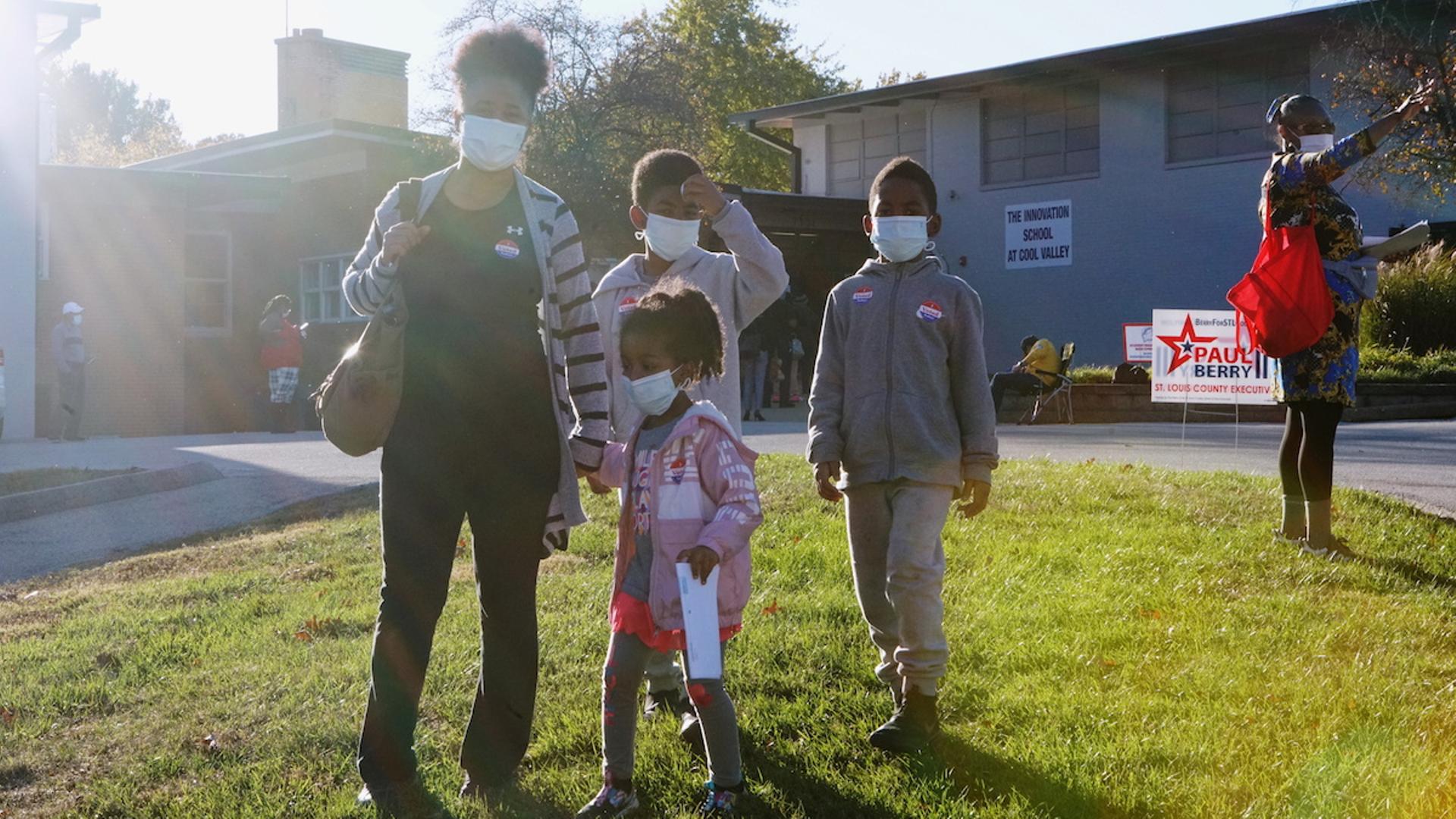Americans have voted under the shadow of a resurging pandemic, with an alarming increase in cases nationwide and the number of people hospitalised with Covid-19 reaching record highs in a growing number of states.
While daily infections were rising in all but three states, the surge was most pronounced in the Midwest and Southwest.
Missouri, Oklahoma, Iowa, Indiana, Nebraska, North Dakota, and New Mexico all reported record high hospitalisations this week.
Nebraska’s largest hospitals started limiting elective surgeries and looked to bring in nurses from other states to cope with the surge. Hospital officials in Iowa and Missouri warned bed capacity could soon be overwhelmed.
The resurgence loomed over candidates and voters, fearful of both the virus itself and the economic toll of any new shutdowns to control its spread.
The debate over how far to take economically costly measures has divided a country already sharply polarised over President Donald Trump’s turbulent four years in office.
Sanitisers jam ballot scanner
The pandemic coloured who voters chose at the ballot box and how they did it.
While many Americans took advantage of expanded access to mail-in voting, lines were long in many polling places, with record turnout expected and reminders of the pandemic were everywhere.
“It’s very serious that we have 400 people gathered in one space at the height of the pandemic here in Wisconsin. So, we’ve tried to take every measure to limit the movement throughout the room,” said Claire Woodall-Vogg, the election commission director of the city of Milwaukee, where poll workers were spread out into 12 different pods to limit contact.
Wisconsin health officials reported 5,771 new coronavirus cases on Tuesday, a new record.
In Indiana, the Republican candidate for attorney general tested positive for Covid-19 after developing “some symptoms,” his campaign announced.
Former US Republican Todd Rokita had been quarantining with this family after learning he was exposed to the virus, it said.
Hand sanitiser on voters’ hands caused a ballot scanner to jam at a polling place in Des Moines, Iowa, secretary of state spokesman Kevin Hall said.
Hall said some voters’ hands were moist when they handled the ballots and the buildup of sanitiser eventually caused the scanner to stop working.
The machine was fixed in about an hour.
Facilities in Iowa could be overwhelmed
Meanwhile, Iowa hospital officials warned their facilities and staff could be overwhelmed without serious efforts to curtail the virus spread.
The state’s seven-day rolling average of positive cases reached 36.4 percent over the weekend, the third-highest in the nation behind South Dakota and Wyoming, according to researchers at Johns Hopkins University.
Hospitalisations reached a record 730 on Monday.
Suresh Gunasekaran, CEO of the University of Iowa Hospitals and Clinics, said Iowa is entering its third peak, one that is higher than previous ones in May and July.
He said his biggest concern is that this peak comes at the beginning of the cold weather season when the flu and other respiratory conditions typically increase hospitalisations.
“The infection rate is definitely a leading indicator for hospitalisations, and the hospitalisation rate is a leading indicator of mortality,” Gunasekaran said.
Health officials in Nebraska said hospitalisations have doubled in recent weeks, reaching a record 613 on Sunday.
“No doubt if this trend continues – not just at our hospitals – but every hospital in the state could be at capacity in a very short period of time,” Dr Cary Ward, chief medical officer for CHI Health’s network of 14 hospitals across eastern Nebraska and western Iowa said during a video call with reporters.

More economic pain
The virus has killed more than 232,000 people in the country and total confirmed coronavirus cases have surpassed 9 million.
As hospitalisations have climbed, so have deaths.
The seven-day rolling average for deaths from Covid-19 has risen over the past two weeks from about 58,424 on October 19 to 83,805 on Monday, according to Johns Hopkins University researchers.
Of equal concern is the fear of more economic pain if the country heads into another round of lockdowns to contain the virus.
While the US economy grew at a record 33.1 percent annual rate in the July-September quarter, it has yet to fully rebound from the plunge in the spring.










Discussion about this post